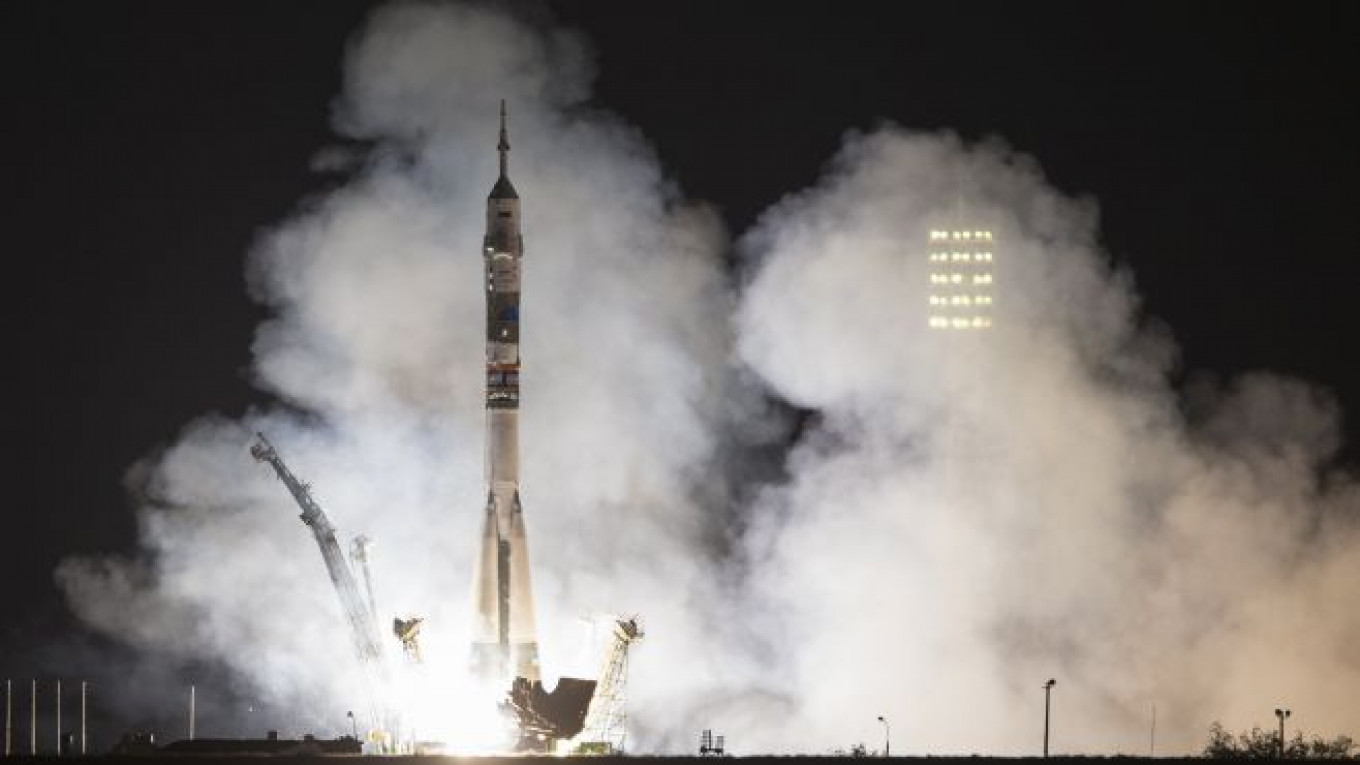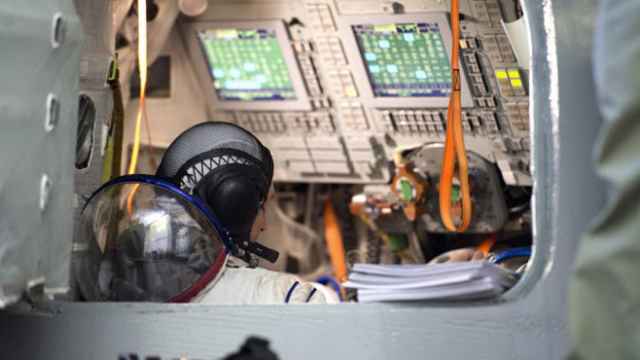A Russian Soyuz rocket safely delivered a U.S.-Russian trio to the International Space Station (ISS) on Friday, despite a technical glitch which briefly threatened to lengthen their journey to the $100 billion complex.
The Soyuz blasted off to the ISS from the Baikonur Cosmodrome in Kazakhstan at 0225 a.m. (2025 GMT on Thursday) to take Russian Alexander Samokutyaev, his compatriot Elena Serova and U.S. astronaut Barry Wilmore into orbit.
But shortly after all stages of the booster were shed and the spaceship reached its designated orbit en route to the ISS, Russian media reported that one of the Soyuz's two solar arrays had failed to deploy.
Quoting space industry sources, the reports said that the batteries of the Soyuz had enough energy for docking, although the crew could still be forced to take a longer, two-day journey to the station instead of the originally planned six hours.
After a few hours, the spaceship finally safely docked at the 15-nation space station in automatic mode and on time, at about 0815 a.m. (0215 GMT.)
The incoming crew will join Russian Commander Maxim Suraev, U.S. Flight Engineer Reid Wiseman and Flight Engineer Alexander Gerst, a German astronaut of the European Space Agency, to return the station to its full, six-member live-aboard team.
Suraev's crew, which has manned the space station since May, is set to return to Earth in November. The incoming crew will serve 170 days until landing in March.
The 15-nation laboratory, which flies at an altitude of about 420 kilometers, is overseen by Russia and the United States.
But this year the two nations' relations hit their lowest point since the Cold War following Russia's annexation of Ukraine's Crimean peninsula, economic sanctions imposed by the United States for the takeover and for what Washington sees as Moscow's support for pro-Russian separatists in Ukraine.
In May, a senior Russian government official cast doubt on the long-term future of the ISS, saying Moscow would reject a U.S. request to prolong the orbiting station's use beyond 2020.
The new crew plans to conduct about 50 scientific experiments aboard the ISS.
A Message from The Moscow Times:
Dear readers,
We are facing unprecedented challenges. Russia's Prosecutor General's Office has designated The Moscow Times as an "undesirable" organization, criminalizing our work and putting our staff at risk of prosecution. This follows our earlier unjust labeling as a "foreign agent."
These actions are direct attempts to silence independent journalism in Russia. The authorities claim our work "discredits the decisions of the Russian leadership." We see things differently: we strive to provide accurate, unbiased reporting on Russia.
We, the journalists of The Moscow Times, refuse to be silenced. But to continue our work, we need your help.
Your support, no matter how small, makes a world of difference. If you can, please support us monthly starting from just $2. It's quick to set up, and every contribution makes a significant impact.
By supporting The Moscow Times, you're defending open, independent journalism in the face of repression. Thank you for standing with us.
Remind me later.






